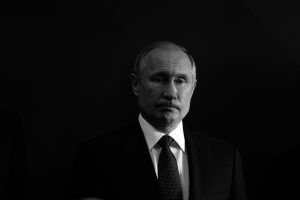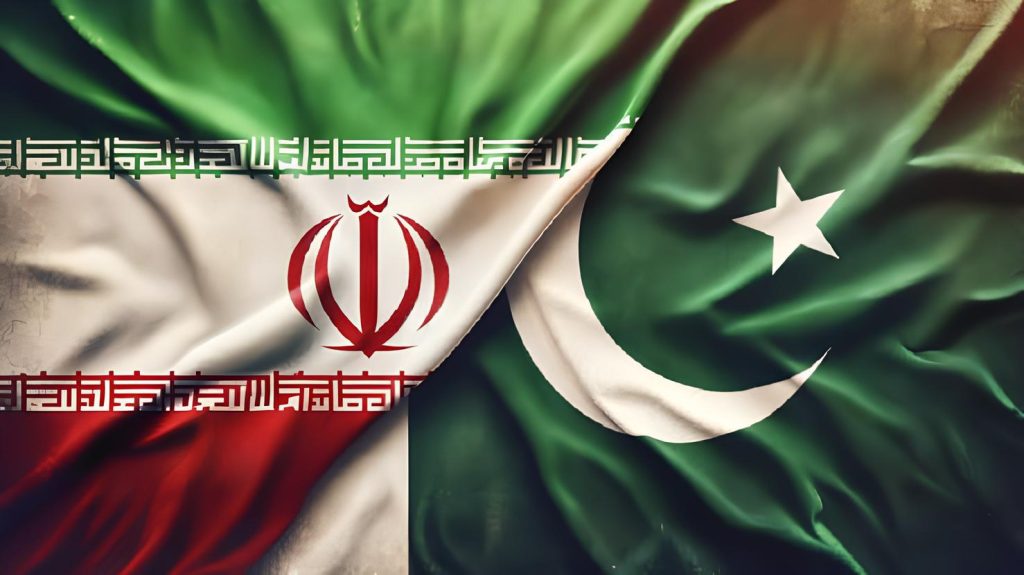
Border clashes test Pakistan-Iran ties amid struggle against Baloch separatists; unusual airstrikes escalate tensions.
JANUARY 25, 2024

Border confrontations and retaliatory airstrikes have put Pakistan’s enduring ties with Iran to the test, intensifying animosity between the two countries. The core issue concerns the longstanding struggle against separatist movements operating along the 900-kilometer volatile border. Both Pakistan and Iran have faced the common enemy of militants in the Baloch region; it is highly unusual for each side to launch strikes on the other’s soil. Iran claimed to be targeting Jaish al-Adl positions in Pakistan’s Balochistan region, launching the recent series of attacks. As a breach of international law, Pakistan denounced the strikes.
Tensions between the two neighboring nations have increased as a result of Pakistan’s claim that Iran violated its airspace without provocation and the tragic occurrence involving the deaths of two children and the wounding of three girls during Iranian strikes within Pakistani territory. Pakistan strongly denounces what it sees as a flagrant violation of its sovereignty, as evidenced by the recall of ambassadors, the suspension of high-level visits, and the furious demonstrations that followed.
Iran, on the other hand, defends its activities by stating that they are a reaction to terrorists of Pakistani origin who are operating inside its borders under the name “Sarmachars.” Pakistani and Iranian declarations have consistently asserted that terrorism poses a common threat to the region and that coordinated actions are necessary to combat it.
Pakistan retaliated by carrying out targeted military operations against alleged rebel strongholds in the Sistan and Baluchestan province of Iran, causing fatalities. Pakistan’s “Marg Bar Sarmachar” operation, reportedly aimed at terrorists in Iran’s Siestan-o-Balochistan region, prompted a series of diplomatic and military responses with severe repercussions.
Historically, Leaders from both sides have acknowledged the great potential of stronger ties from their shared religious, historical, ethnic, and cultural backgrounds. For instance, Iran’s Foreign Minister Javad Zarif stated, “Tehran sets no limitations for the expansion of ties with Islamabad,” and Pakistan has agreed.
Iran was the first country to recognize Pakistan on August 14, 1947. Additionally, Pakistan’s first foreign embassy was housed in Iran. Pakistan and Iran have enjoyed friendly relations for decades. Remarkably, except for a few irritants, there isn’t a significant disagreement between the two nations.
Since Iran was a powerful United States ally before the revolution, the two nations have always had more than friendly relations. Iran provided unwavering support to Pakistan during the two wars against India and was shocked by the aftermath of the 1971 war, which culminated in the loss of then-East Pakistan. According to reports, the Shah of Iran prioritized Pakistan’s well-being on his foreign policy agenda, displaying a strong connection. He was cited as stating, “He could not tolerate the (further) disintegration of Pakistan,” and that he had also told the Indians that Iran would come to Pakistan’s help if the situation escalated.
However, the 1979 Islamic revolution and ensuing religious disputes deteriorated relations, which were increased by conflicting alliances in Afghanistan. Sectarian tensions rose in the 1990s as a result of Iran’s support for Shi’ite organizations in Pakistan, widening the gap between the two countries. Despite the hurdles, diplomatic relations remained cordial, with the US factor playing a role, as Pakistan allied with the US on 9/11, causing an imbalance with Iran.
After the Taliban killed Iranian diplomats in 1998, the situation in Afghanistan strained relations even more, with both countries siding with opposite sides. US-Iran relations, which had been damaged throughout the Iran-Iraq war, worsened, negatively hurting Pakistan-Iran relations. The United States and Pakistan allied post 9/11 to combat the Taliban. Still, the distance between the two countries became even wider when Bush included Iran in his “axis of evil” conspiracy theory. At the same time, Pakistan was worried about Iran’s cordial relations with India.
A possible thaw was hinted at by events from the previous year when leaders of the two countries jointly opened a marketplace and a power transmission line along their shared border to promote trade and energy cooperation. The current improvement in relations between Iran and Saudi Arabia, facilitated by China, and the developing economic links between Iran and China present new chances for Pakistan. Developing the Gwadar and Chabahar ports’ potential and expanding the China-Pakistan Economic Corridor (CPEC) to Iran has the potential to improve regional connectivity and collaboration.
However, recent border clashes and airstrikes have brought complexities to the forefront. Iran claimed to be targeting Jaish al-Adl militants in Pakistan’s Balochistan province, citing the presence of terrorists of Pakistani origin as a potential threat. Pakistan declared breaches of its sovereignty and denounced the strikes. Temperatures rose, with both countries launching military strikes on each other’s soil, resulting in a critical diplomatic and military crisis.
The incident takes place concurrently with Iran’s military incursions outside its borders, including bombings into Syria and Iraq. Although Iran and India have developed cordial relations, Pakistan’s concerns have received thoughtful watch. Complicating the already complex geopolitical circumstances, Iran and India had bilateral negotiations before the conflicts, including discussions on the Chabahar Port and the International North-South Transport Corridor during the visit of Indian Foreign Minister Dr. S. Jaishankar to Iran.
The world’s reactions have been mixed; some have criticized Iran’s behavior as illegal, while others have stressed the urgency of addressing regional security concerns. In these unpredictable times, collaboration, diplomacy, and a dedication to shared security played an important role. Diplomatic initiatives between Pakistan and Iran’s Foreign Ministers, Jalil Abbas Jilani and Iran’s Hossein Amir Abdollahian, demonstrate a determination to resolving the problem through negotiation, emphasizing shared security concerns, and acknowledging longstanding brotherly connections.
Despite the difficulties, recent diplomatic discussions resulted in the decision to return ambassadors to their respective capitals on January 26, 2024, signaling a concrete step towards normalizing diplomatic relations. The desire of both countries to fortify diplomatic relations is further demonstrated by the Iranian Foreign Minister Hossein Amir Abdollahian’s impending visit to Pakistan on January 29, 2024, at the invitation of Pakistan’s Foreign Minister Jalil Abbas Jilani.
De-escalation and fresh collaboration are critical as nations negotiate common difficulties and opportunities. The return of ambassadors and high-level visits offer candid dialogue and trust-building. Recognizing the interdependence of economic interests, regional security, and the fight against terrorism, both countries must give diplomatic channels the utmost importance in their dispute settlement efforts.
Finally, recent border tensions between Pakistan and Iran have tested the strength of their historically close ties. Recent diplomatic measures also have signaled efforts to de-escalate and reestablish collaboration while challenges remain. Most significant factor, finding common ground requires a nuanced approach due to the intricacies resulting from historical disparities, regional dynamics, and global impacts. Recognizing mutual security concerns and committing to fighting common enemies highlight the critical role of diplomacy in the face of rising tensions. Pakistan and Iran maintain strong fraternal ties and are dedicated to developing mutually trusting cooperative efforts, highlighting the importance of prompt and efficient diplomatic interventions.
At this juncture, the importance of diplomatic endeavors cannot be emphasized; diplomatic channels were crucial for reducing tensions, fostering mutual understanding, and determining how to achieve regional stability, as they played a critical role in preventing further deterioration of relations and creating an environment receptive to collaboration and peaceful resolution. As both countries traverse these new waters, the emphasis must be on conversation, trust-building, and a shared commitment to regional stability. Not only would an escalation impact the bilateral relationship, but it could also affect the geopolitical landscapes of South Asia and the Middle East.
A curated seletion of FA’s must-read stories.
Written By: DILARA SAHIN
Written By: RIZWAN RAFI TOGOO
Written By: ERIC SONG
Written By: BATUHAN GUNES
Written By: E. ERDEN
Written By: SHOHREH POOLAB
Written By: ALEYNA TASTAN
Written By: CIHAN KAAN GAZI

Hira Sarwar is an Islamabad-based Postgraduate IR Scholar. She completed her master's degree in International Relations from the University of Karachi. Hira is an editor and a foreign affairs researcher for the diplomatic newsroom World Affairs Insider. She has been working for a year in the field of diplomatic studies. Her research areas are Foreign Policy Analysis, Public and Cultural Diplomacy, Non-traditional Security Threats, and Political Economy.
Written By: GABRIEL RAMIREZ
Written By: DILARA SAHIN
Written By: DILRUBA YILMAZ
Written By: NILAY CELIK
Written By: ELDANIZ GUSSEINOV
Written By: JOSEF SCHOEFL
Written By: SELCAN BEDIRHANOGLU
Written By: FATIH CEYLAN
FA’s flagship evening newsletter guilding you through the most important world streis ofthe day. Delivered weekdays.
